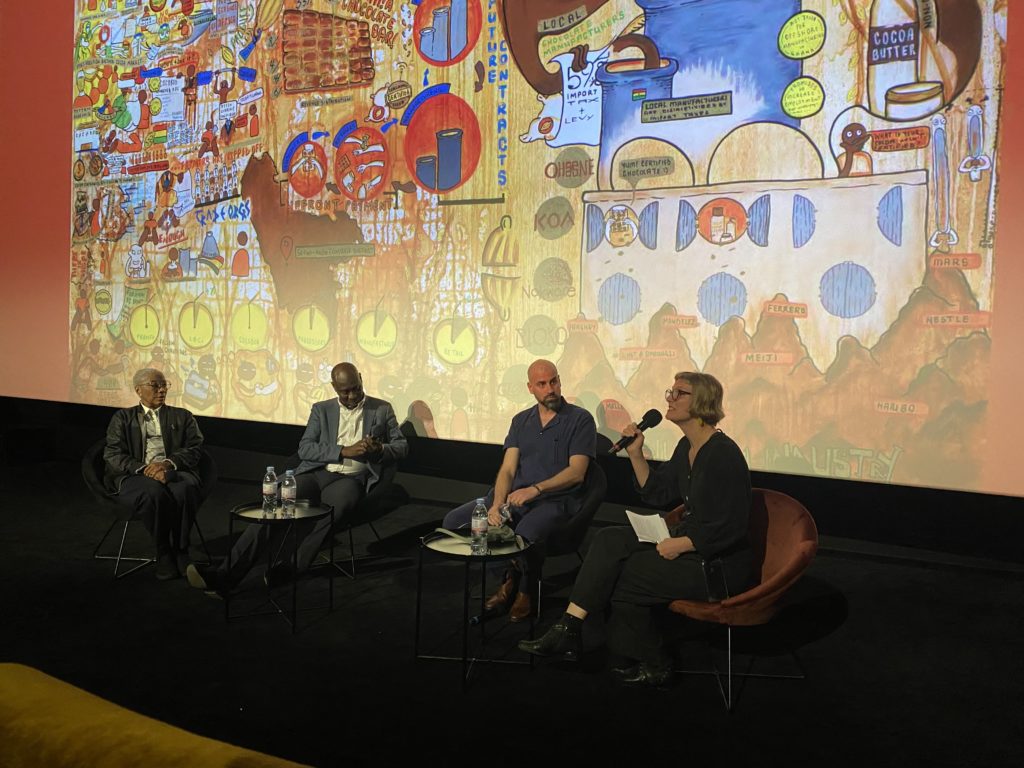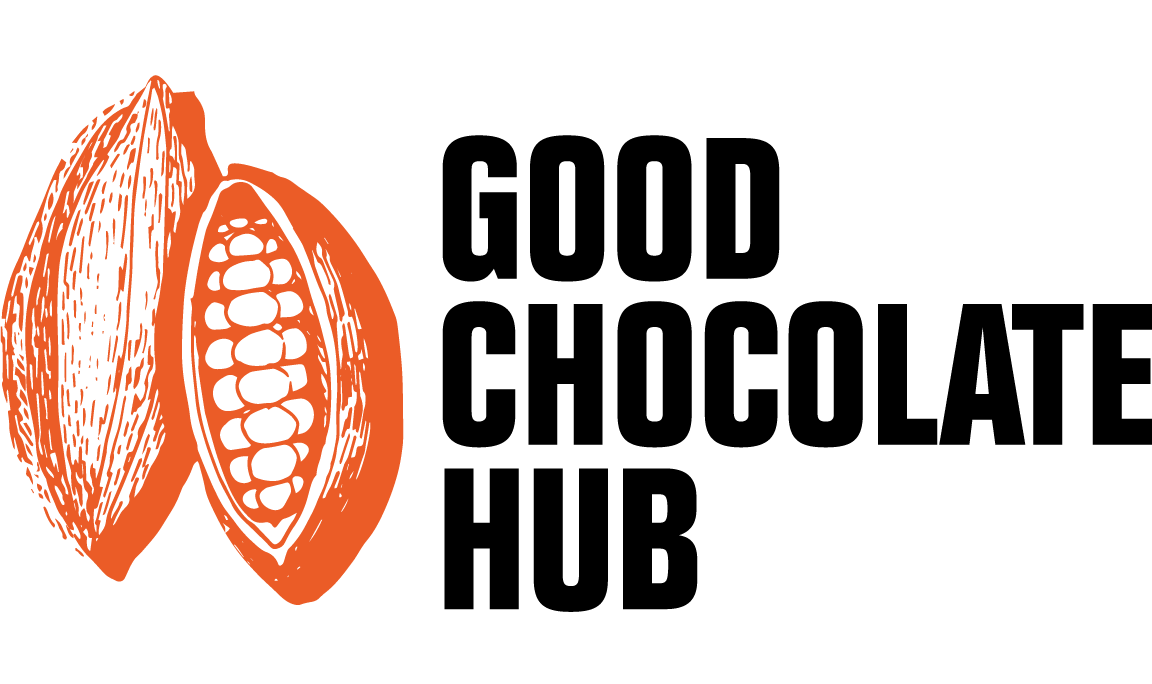What is behind the cocoa that comes from Ghana to Switzerland for our chocolate?
The film premiered in early 2025 in Accra (Ghana) and at the Schoggifestival ehrundredlich in Zurich (Switzerland), including a panel discussion with protagonists Jeanne Donkoh (Bioko Treats), Nana Aduna II (Ohene Cacao) and filmmaker Philippe Stalder, moderated by Andrea Hüsser (Good Chocolate Hub).

Philippe Stalder’s documentary film ‘Reclaiming Cocoa’ offers an in-depth investigative look at the complex and often problematic cocoa value chain between Ghana and Switzerland. The film combines historical insights, personal life stories and current revelations to uncover the multiple injustices and challenges facing the global chocolate industry – while also offering hopeful perspectives for the future.
The starting point is Ghana, the world’s second largest cocoa producer, accounting for around 20% of global production. For rural communities there, cocoa is much more than a raw material – it is a means of subsistence and part of the social structure. But despite its importance, most of the economic value flows to Europe, especially to Switzerland, where large chocolate companies (e.g. Nestlé, Lindt) have their headquarters and dominate the value chain.
The film follows the multi-generational Nartey family from Ghana, whose children have to work on cocoa plantations instead of going to school. These personal stories illustrate the social realities for small farmers and their families, who, despite their hard work, hardly benefit from the global chocolate market. The film depicts systematic abuses in the cocoa sector, such as child labour, low pay for farmers, lack of transparency and exploitation by middlemen.
Particularly sensational are the investigations that uncover conspicuous fraudulent practices: middlemen manipulate scales, forge documents and mix certified organic or Fairtrade beans with conventional cocoa beans. As a result, many of the promises made by international chocolate companies regarding traceability, fair prices and sustainability often remain nothing more than marketing strategies. The system reveals itself to be a web of opacity and profit maximisation at the expense of producers.
Historically, the film places the current and long-standing problems in Ghana’s cocoa sector in the context of colonial history: In the 19th century, Swiss missionaries (Basel Mission) not only brought Christianity to Ghana, but also planted the first cocoa trees in 1848, thus laying the foundation for a colonial-style trading system between Ghana and Switzerland, even though Switzerland did not formally own any colonies. The Basel Trading Company, founded in the 19th century, became one of the most important players in the British protectorate of the Gold Coast (now Ghana). It organised the export of cocoa on a large scale and contributed to Ghana becoming the world’s largest cocoa producer by 1911 – a trading system that continues to reproduce extreme inequality in the power and value structures of the cocoa trade to this day.
The film Reclaiming Cacao also criticises the complex political and economic conditions in Ghana, which make it difficult for local entrepreneurs to generate added value locally with cocoa. There is an export-oriented system (cocoa as a cash crop), which means that even local companies have to re-import cocoa and pay high customs duties on it. Central to this system is the Ghana Cocoa Board (COCOBOD), a government agency that acts as a kind of ‘cocoa ministry’. COCOBOD controls the prices of cocoa beans and has the exclusive right to regulate the cocoa trade in the country. All cocoa business transactions are conducted through COCOBOD, which monitors the cocoa market and channels exports. COCOBOD’s monopoly position is intended to protect farming families from fluctuations in the world market price of cocoa, but at the same time it limits the ability of local producers and entrepreneurs to operate directly on the market or create added value locally. However, this protection only works in one direction: When world market prices for cocoa fall, COCOBOD stabilises farmgate prices (the prices farmers receive when they sell their products directly from their farms, before transport, processing and marketing costs are incurred) through price controls and a stability fund. If, on the other hand, international prices rise sharply (as they did last year), farmers are often unable to benefit to the same extent, as COCOBOD secures large quantities through advance sales at fixed prices.
In addition to its critical analysis, the film also highlights positive developments, such as the Ghanaian chocolate company Bioko Treats, whose founder Jeanne Donkoh produces artisanal chocolate directly on site, setting an example for new local value creation and fair trade in the cocoa industry. Or innovative companies such as KOA, which produces cocoa juice from cocoa pulp in Ghana, enabling cocoa farmers to diversify their income.
The film Reclaiming Cocoa shows that only through a fairer distribution of economic added value can local people in particular benefit in the long term from global demand for chocolate, with better living conditions, education and greater economic independence.
Highly recommended if you want to take a look behind the scenes of cocoa production in Ghana.


